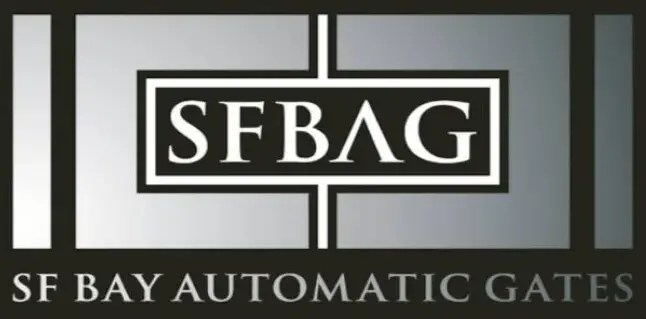As the sun sets over the San Francisco Bay, it casts a warm glow on the myriad of homes lining its shores. Each home, with its distinct architectural style, colors and landscaping choices, presents a unique tableau. Among these elements that contribute to the overall aesthetic appeal and functionality of a property, one often overlooked aspect is fencing. The choice of fencing – from its material to design – plays an inconspicuous yet significant role in shaping not just the physical boundaries of a property but also its perceived value. This article ventures beyond the picket fences into understanding how different types of fences influence property values in this region. It seeks to elucidate whether an ornate iron fence contributes more or less value than a simple wooden one; or if investing in eco-friendly bamboo fencing can truly enhance your return on investment when selling your house. By navigating through this labyrinthine topic, readers will gather critical insights about making informed decisions regarding their own fencing choices - decisions that could potentially affect their economic profitability as well as their place within the community they call home. Assessing Different Types of Fences A comprehensive assessment of various types of fences reveals a significant correlation between fencing choice and property value. Research indicates that the type of fence installed on a property can significantly influence its aesthetic appeal, security level, and privacy provision, all factors that prospective buyers often consider when estimating a property's worth. For instance, wooden fences are popular due to their classic appeal and versatility in design options; however, they require regular maintenance to prevent damage from weather conditions or pests. Vinyl fences offer durability and low maintenance requirements but may not provide the same traditional charm as wooden ones. An analysis of metal fences such as aluminum or wrought iron shows these options add both security and elegance to properties. Aluminum fences are affordable, resistant to corrosion, and customizable in terms of color and style while offering an unobstructed view if preferred by homeowners. On the other hand, wrought iron fences are high-end choices known for their intricate designs that add a touch of luxury to any landscape setting. However, unlike aluminum counterparts, these demand consistent care to avoid rusting over time. Reflecting on less conventional fencing materials like bamboo or composite allows one to appreciate their unique benefits alongside potential drawbacks. Bamboo fencing is eco-friendly with a rapid growth rate providing quick replenishment after harvest; it also adds an exotic flair suitable for specific architectural themes or landscaping styles. Despite this, it requires diligent upkeep due to susceptibility towards rotting without proper treatment against moisture absorption. Composite fencing offers a balance between aesthetics and durability as it mimics wood's visual appeal without succumbing easily to physical degradation; nevertheless, initial installation costs can be higher than other alternatives. Understanding these implications helps homeowners make informed decisions about which type of fence best enhances their property value based on individual priorities regarding aesthetics, maintenance needs, sustainability considerations among other aspects relevant in today's real estate market dynamics. Determining the Influence on Home Worth Understanding the correlation between various barriers and home worth can significantly influence financial outcomes for homeowners. The type, quality, and aesthetic of fencing choices have a direct bearing on property value. First impressions are often lasting, and prospective buyers usually form an opinion about a property within the first few seconds of viewing it. A well-chosen fence demonstrates attention to detail and care for the aesthetics of the property, which encourages positive assumptions about the maintenance of the rest of the home. Thus, a high-quality fence has the potential to increase a property's perceived value. 1. Material Choices: The choice of material for fencing is critical as different materials offer varying levels of durability, maintenance requirement, privacy protection, and aesthetic appeal. For instance, while wooden fences might offer rustic charm and privacy, they require more upkeep than metal or vinyl options. 2. Design Suitability: Matching fence design with architectural style enhances curb appeal by creating visual harmony. An incongruous combination may detract from the overall appearance, leading to depreciation in value. 3. Maintenance Level: A low-maintenance fence such as vinyl or aluminum can be more appealing to buyers who do not want to invest additional time or money into upkeep. 4. Privacy Provision: Fences that provide ample privacy like solid wood or vinyl panels tend to add more value due to increased demand for secure residential spaces. The impact on home worth extends beyond immediate monetary gains; it also influences future selling prospects profoundly. An optimized fencing choice can expedite sales by attracting discerning buyers seeking both functional utility and aesthetic appeal in residences' exteriors. Without resorting to finality statements but acknowledging continuity in learning about real estate investment strategies - it becomes evident how pivotal wise decisions around barriers become when aiming at maximizing returns on residential properties investments — indeed proving that every detail matters when it comes down to enhancing overall home worth through strategic exterior improvements such as selecting appropriate fencing types based on individual housing needs and market trends. https://www.sfbay-automaticgates.com/fence-contractor/resilient-barriers-sf-bays-guide-to-weather-proofing-your-fence/
Serving Silicon Valley | License # 1118540
